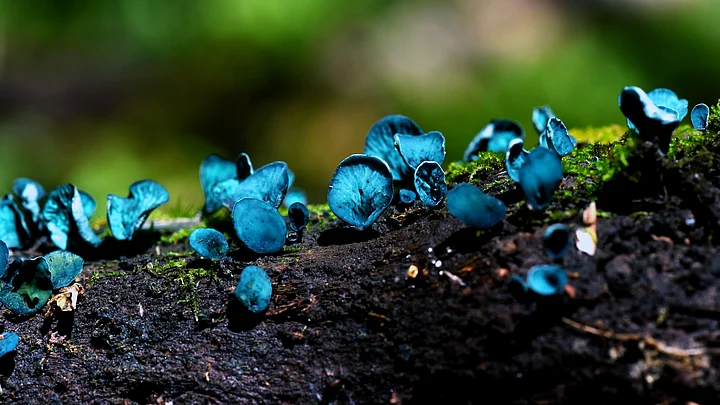Some Yunnan people are building their lives around wild mushrooms for both economic and ecological benefits.
Every May, monsoons from the Pacific and Indian oceans bring abundant rainfall to southwestern China’s Yunnan Province, which makes it a paradise for wild mushrooms.
How many types of mushrooms grow in Yunnan?
According to data published by Yunnan Agricultural University, about 900 types of edible wild mushrooms are scattered across the province, accounting for 90 percent of China’s total and 36 percent of the world’s total.
Based on their research on edible wild mushrooms, scientists have worked out sustainable development patterns promising both economic and ecological benefits.
Dilemma No More
Panax pseudo-ginseng is an expensive plant used in traditional Chinese medicine. Lancang Lahu Autonomous County in Pu’er City, Yunnan Province, has reaped considerable economic benefits by planting it. However, the plant is so needy in terms of conditions that it cannot flourish twice in the same field within a decade.
To utilize fallow areas where Panax pseudo-ginseng had grown and the idle fields between the trees, in 2019, Professor Gui Mingying, vice president of the Yunnan Plateau Characteristic Agricultural Industry Research Institute, led a team to the county to test planting edible mushrooms including Stropharia rugosoannulata, Morchella esculenta, and Lentinus edodes. This experiment yielded promising results.
“Growing edible mushrooms this way can effectively preserve the soil while generating revenues for local farmers, which means we found a way to ensure both economic and ecological benefits,” said Professor Gui.
The new planting pattern gradually altered farmers’ working habits.
“Growing edible mushrooms demands sufficient water supply but the fields of Panax pseudo-ginseng are usually far from a water source,” Professor Gui noted.
“The farmers didn’t water the fields much because it takes so long for Panax pseudo-ginseng to mature. But they have to more actively water edible mushrooms during dry seasons because their growth cycle is much shorter. Our method ensures the trees, Panax pseudo-ginseng, and edible mushrooms all have enough access to water.
Their planting pattern has already been replicated in other places. The research team from Yunnan Agricultural University also experimented with planting edible mushrooms in tea gardens to improve growth and quality of tea leaves.
They tested planting particular mushrooms known for absorbing minerals in former mining areas to help revive the soil and restore the natural environment.
Untied Knot
Professor Gui Mingying has been dedicated to researching the preservation and utilization of edible wild mushroom resources for years. Her latest research has focused on increasing fertility and facilitating protection of edible wild mushrooms to achieve sustainable development.
Tricholoma matsutake is one of the most precious types of mushrooms that Professor Gui has studied. Although it only takes a few weeks from budding to maturing, its spores can remain dormant in the fields for as long as six years, and the survival rate is extremely low. Professor Gui believes it is reasonable to pick Tricholoma matsutake with a fruiting body extending longer than six centimeters and intentionally leave some of them fully matured.
This species of mushroom reaches sexual maturity when its head fully stretches like an umbrella, and its spores spread into the soil. Professor Gui suggested farmers return the soil to where it was when picking Tricholoma matsutake to best preserve the spores and their ecological link to the soil.
But preserving and utilising Tricholoma matsutake has presented a dilemma. Japanese fans of the mushroom prefer immature Tricholoma matsutake because they taste better than mature ones. Such an industrial standard has made it harder and harder for the mushroom to develop sustainably.
“We better not pick immature Tricholoma matsutake because they have not yet produced spores,” Professor Gui said.
“If you reap them, there will be no more. And it is not worth picking the over-mature ones because of their inferior taste; just leave them where they are, and this will benefit the smaller ones still growing.”
Professor Gui has also worked on preserving other edible wild mushrooms such as truffles. “We suggested a specific window for picking truffles, which bans picking before November when they reach maturity.”
On 8 September 2021, China renewed its list of wild plants under state protection, and Ophiocordyceps sinensis, Tricholoma matsutake, and Tuber sinoaestivum were added to the list. Great efforts by many are ensuring a brighter future for farmers and wild mushrooms alike.
(The content is provided by Beijing-based China-India Dialogue.)
